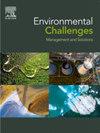对熊胆的态度和购买意愿的决定因素:基于野生动物价值取向和扩展计划行为理论在越南河内的分析
Q2 Environmental Science
引用次数: 0
摘要
越南的非法野生动物贸易对生物多样性构成了重大威胁,尽管现有的法律保护和文化习俗继续推动需求,但许多物种仍被剥削。熊胆消费体现了这一挑战,强调需要从人的角度来更好地理解和解决这一问题。本研究利用野生动物价值取向(WVO)框架和扩展的计划行为理论(TPB)模型,调查了越南河内市居民对熊胆的态度和购买意愿的决定因素。数据通过自我管理的便利调查收集,得到256个有效答案,并使用AMOS 28上的结构方程模型(SEM)进行分析。结果表明,主观规范、道德义务、感知的药用价值和对适当使用的信念显著地影响了人们对熊胆消费的态度。尽管约25%的受访者认可熊胆的药用价值,但拒绝使用熊胆的现象仍然普遍存在。反过来,道德义务、态度和年龄是购买意愿的关键预测因素。而直接自我报告显示低购买意愿,间接询问显示较高的感知意愿的同伴,表明社会可取性偏见的影响。这些发现指出了将道德和社会层面纳入减少需求战略的重要性。由于非随机抽样的局限性,泛化应谨慎进行。本文章由计算机程序翻译,如有差异,请以英文原文为准。
Determinants of attitudes and purchase intentions toward bear bile: An analysis based on Wildlife Value Orientations and the extended Theory of Planned Behavior in Hanoi, Vietnam
The illegal wildlife trade in Vietnam poses a significant threat to biodiversity, with many species exploited despite existing legal protections and cultural practices continuing to drive demand. Bear bile consumption exemplifies this challenge, underscoring the need for a human dimensions approach to better understand and address the issue. This study investigates the determinants of attitudes and purchase intentions toward bear bile in Hanoi, Vietnam, drawing on the Wildlife Value Orientation (WVO) framework and an extended Theory of Planned Behavior (TPB) model. Data were collected through a self-administered convenience survey, yielding 256 valid responses, and analyzed using structural equation modeling (SEM) on AMOS 28. Results show that subjective norms, moral obligation, perceived medicinal value, and beliefs about appropriate use significantly shaped attitudes toward bear bile consumption. Despite about 25% of respondents endorsing its medicinal properties, rejection of bear bile use remained prevalent. In turn, moral obligation, attitudes, and age were key predictors of purchase intention. While direct self-reports indicated low purchase intentions, indirect questioning revealed higher perceived intentions among peers, suggesting the influence of social desirability bias. These findings point to the importance of incorporating ethical and social dimensions into demand-reduction strategies. Generalization should be made with caution due to limitations associated with non-random sampling.
求助全文
通过发布文献求助,成功后即可免费获取论文全文。
去求助
来源期刊

Environmental Challenges
Environmental Science-Environmental Engineering
CiteScore
8.00
自引率
0.00%
发文量
249
审稿时长
8 weeks
 求助内容:
求助内容: 应助结果提醒方式:
应助结果提醒方式:


